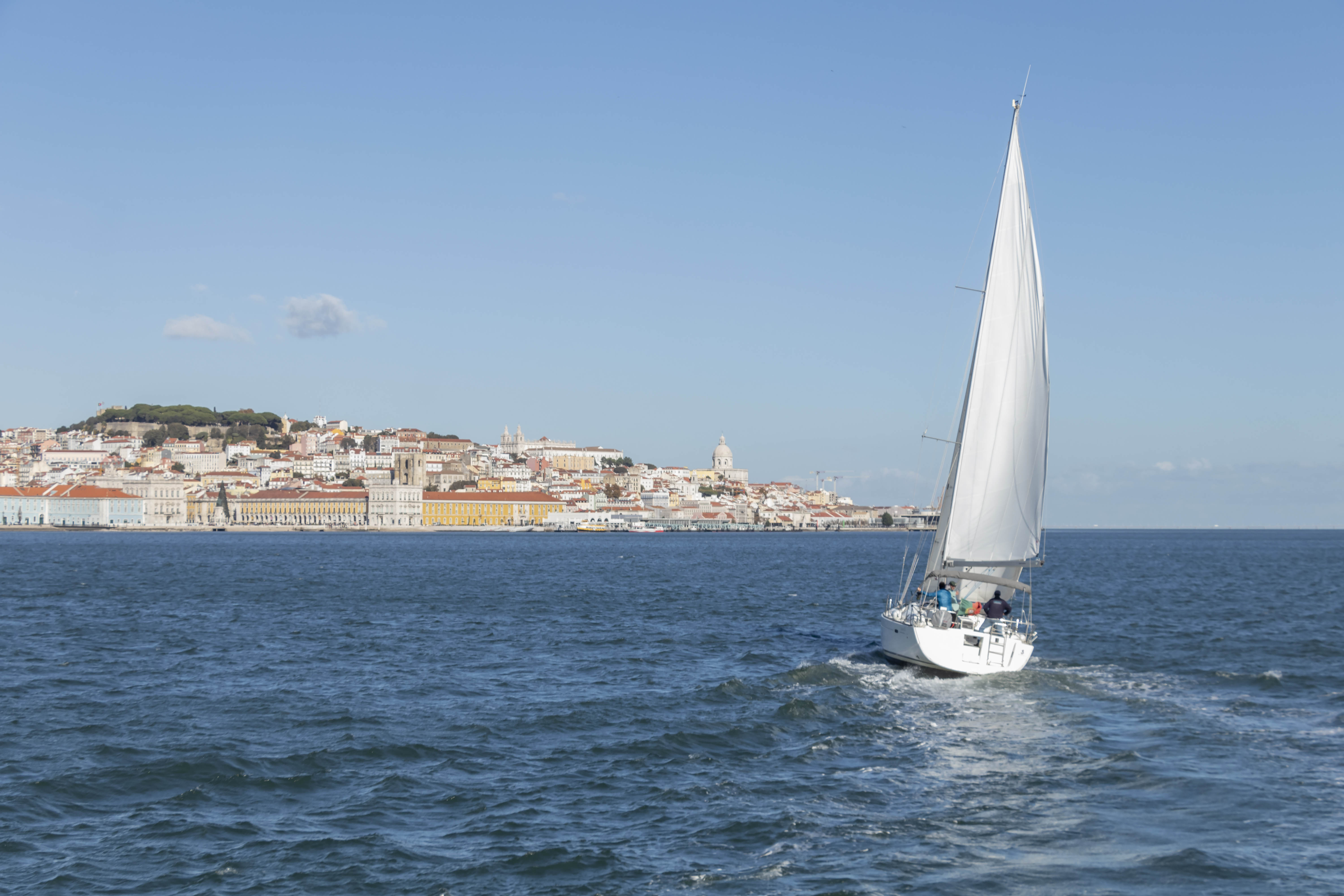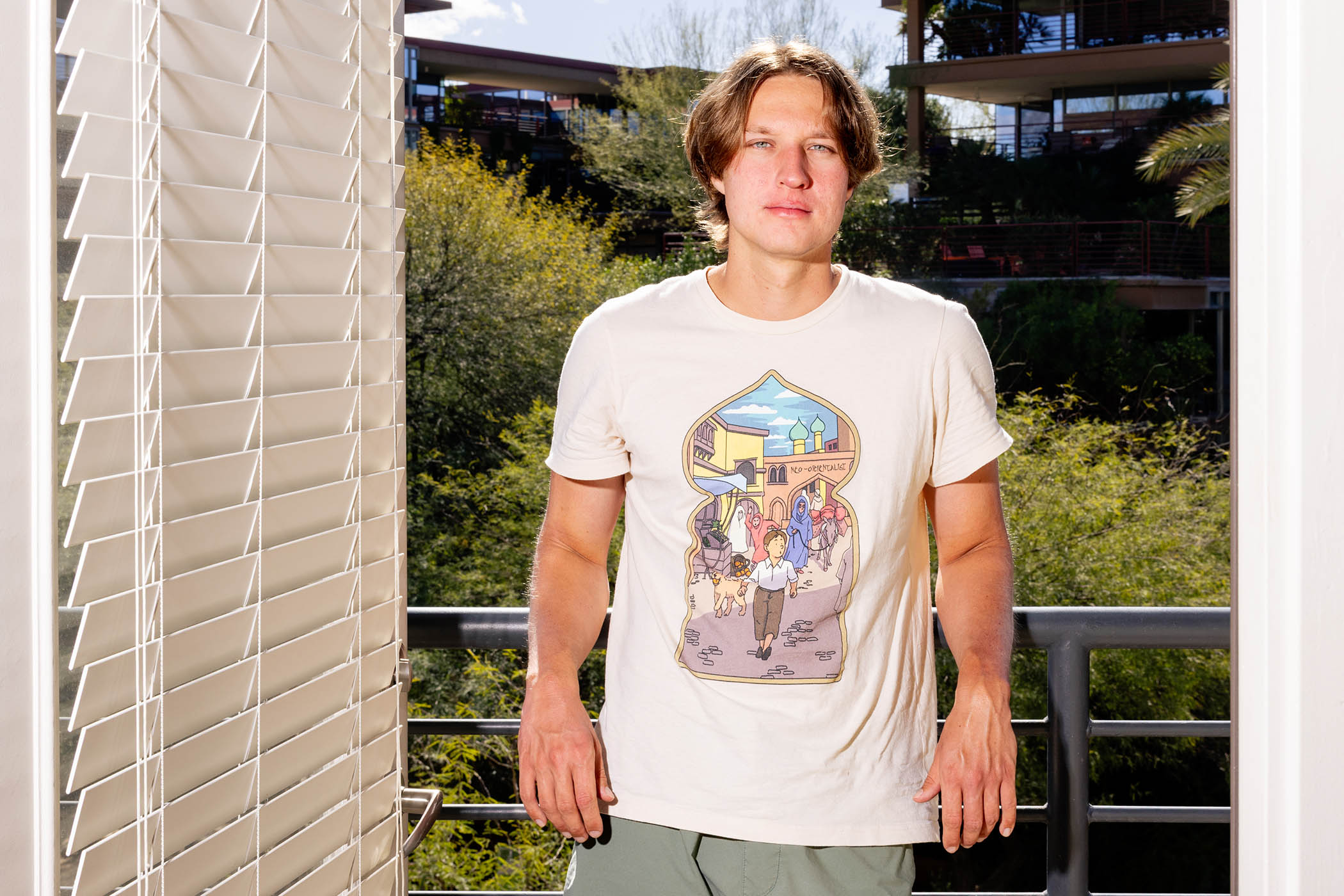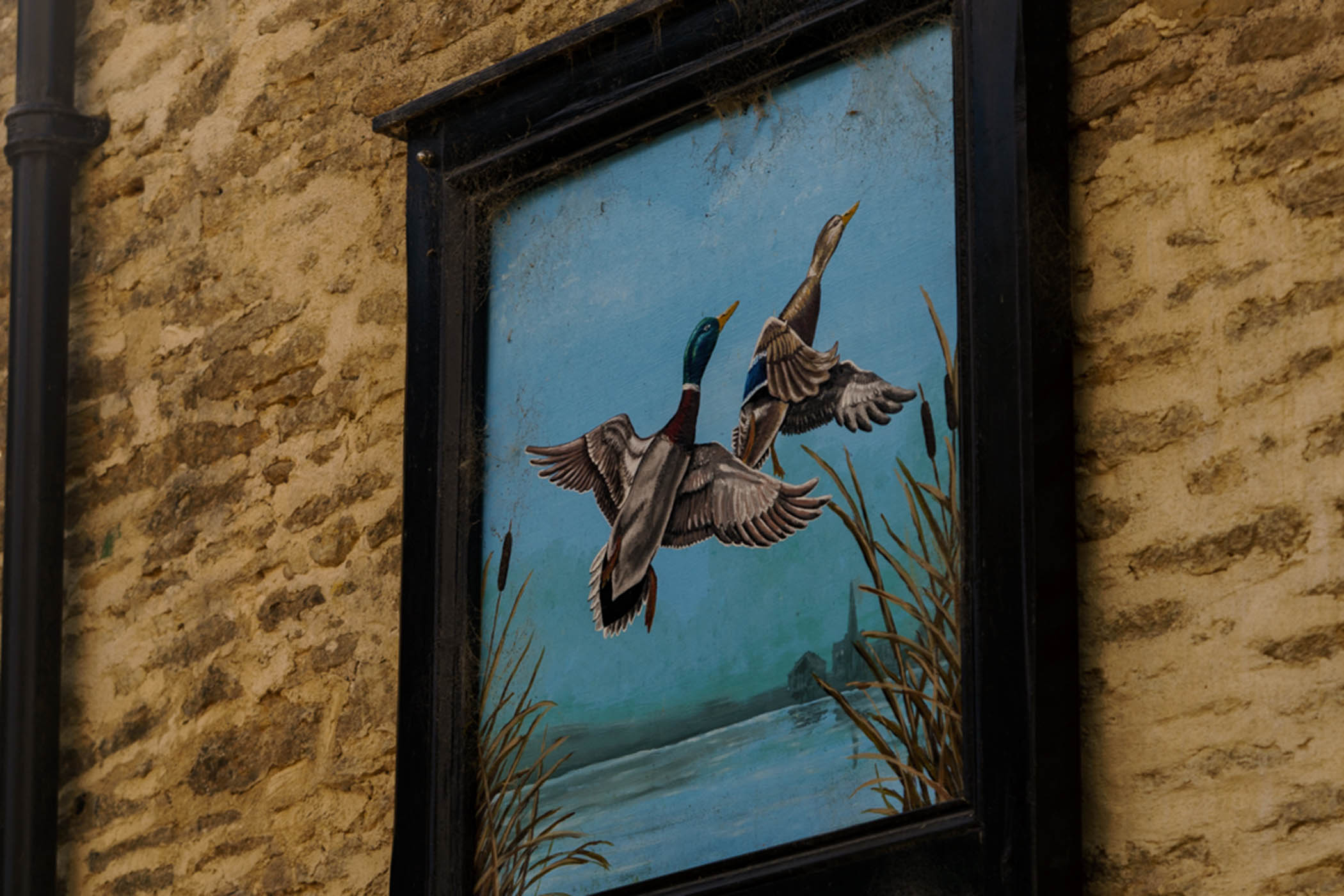I used to live, for part of the time, on an elderly canal boat with no heating on a Thames marina. I often met seasoned sailors whose entire way of being was shaped by their relationship with the sea. I’m not sailor material myself – I hate being wet, I’m clumsy, I like sleeping – but I marvelled at their devotion to their vessels and their love affair with the ocean.
One day, I woke up knowing I badly wanted a taste of that love affair. For myself. Because I wanted to know what I was missing. But chiefly because the woman in my new novel had endured great trauma and I wanted part of her recovery to play out on a sailing trip, the vastness of her emotional landscape matched by the ocean. The trouble is, I had no firsthand experience of the ocean. And I couldn’t sail. That night I found myself searching the internet for crewing opportunities. I paused on a listing for a voyage aboard Skyelark 2, a 62ft Oyster. It was travelling from Portsmouth across the Bay of Biscay to Lisbon, no experience necessary, departure a few months hence.
I booked the trip and took a sea-survival course at a specialist centre outside Glasgow, where I learned the different kinds of flare and how to right a capsized life-raft. I got trapped underneath it in the pool and had to be pulled out. I enrolled in the theory part of the Day Skipper qualification, devoured YouTube tutorials on knots, prowled Decathlon for foul-weather gear. But I avoided actual sailing. In truth, I was frightened.
I arrived in Portsmouth on a bright September day to join a crew of nine, including Dan and Emily Bower, the skipper and co-skipper (and husband and wife), and a mix of seasoned sailors and keen amateurs. There were two more women: myself and Rike, a German actor and regular crew member. Danish sailor Søren and his son Seb were on a bonding trip. James, Peter and Tim were businessmen.
‘You left your hatch open,’ said Dan. Waves had poured in, soaking everything
‘You left your hatch open,’ said Dan. Waves had poured in, soaking everything
Skyelark 2 herself was glorious: deep midnight blue with elegant lines and a teak deck. Oysters are the Aston Martins of ocean sailing – fast, safe and beautifully made.
My cabin was the forepeak – the small triangular prow with a hatch above and a chain locker at my feet. It was panelled in dark wood and had its own door. I loved it. I unpacked neatly, foolishly tucking away the lee cloths that could hold you in bed during heavy seas. It was hard to imagine we’d need them.
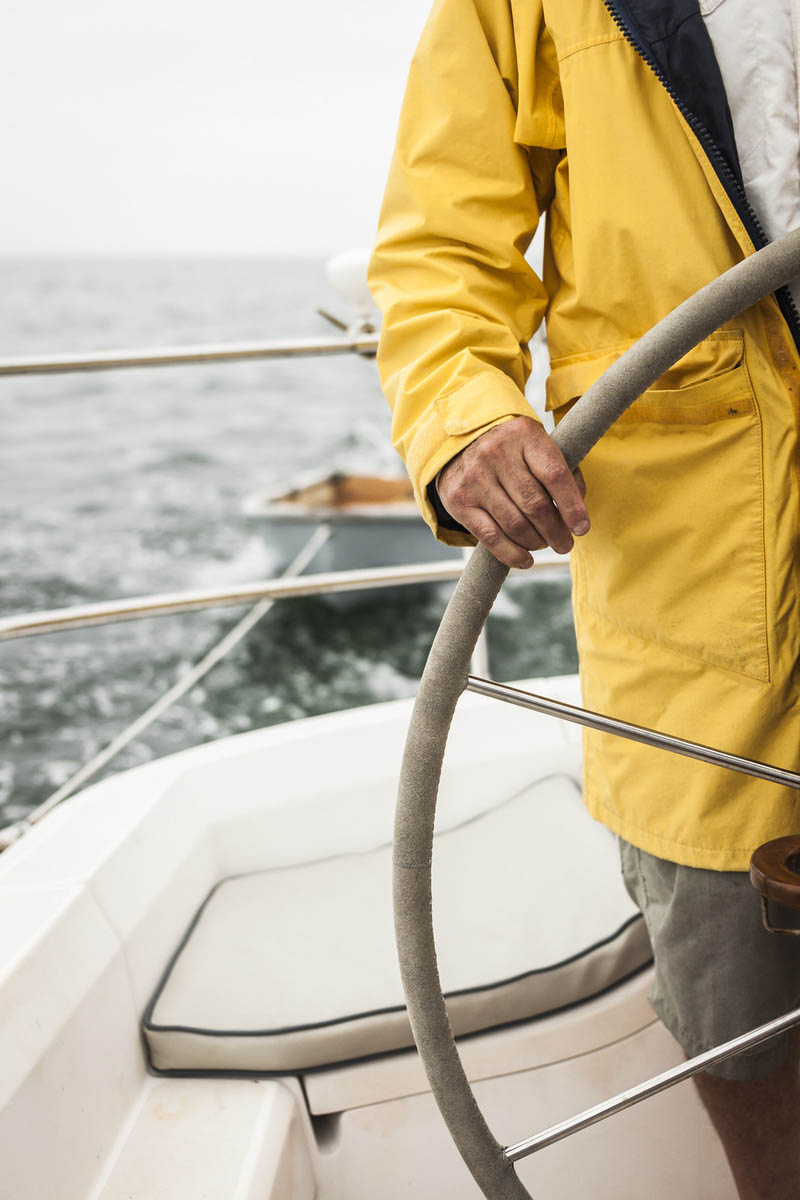
On the first night, I realised I had forgotten to bring a sleeping bag. Amazingly, Søren gave me his. It was my first glimpse of a sailing ethos I came to cherish: the unshowy kindness and humour that binds people at sea.
We set off with a shakedown leg to Falmouth, testing routines and equipment. That’s when I asked the question that had been troubling me: how do we stop at night to sleep? Dan blinked. “We don’t stop,” he said. “We sail in shifts, 24 hours a day.”
I was mortified. Not since early motherhood had I voluntarily given up sleep. The rota read like a military schedule. I saw my name between calm, competent souls – Søren and Tim – and hoped for the best.
From Falmouth, we headed south across the English Channel. The rugged coastline of Brittany looks much like our own Cornish coast, and the name of the westernmost French department, Finistère, even translates as Land’s End. Not that I saw any of it: I was too busy throwing up. No amount of seasickness pills helped. My forepeak cabin turned out to be the worst place, with every movement magnified. Dan suggested I lie along the centreline in the saloon. I missed watches and felt wretched until it passed.
Newsletters
Choose the newsletters you want to receive
View more
For information about how The Observer protects your data, read our Privacy Policy
I gave up on regular time. My world divided into four-hour shifts: helm, sleep, eat, repeat. Without alcohol, my blood sugar wobbled. I’d brought chocolate, which made me briefly popular. Meals were simple: paella, roast meat, hot breakfasts. “Mother rota”, when you cooked for the crew, meant no watches. But it also meant working in a galley that rocked like a cradle and sharing a stove with someone while ducking low-swinging cupboards.
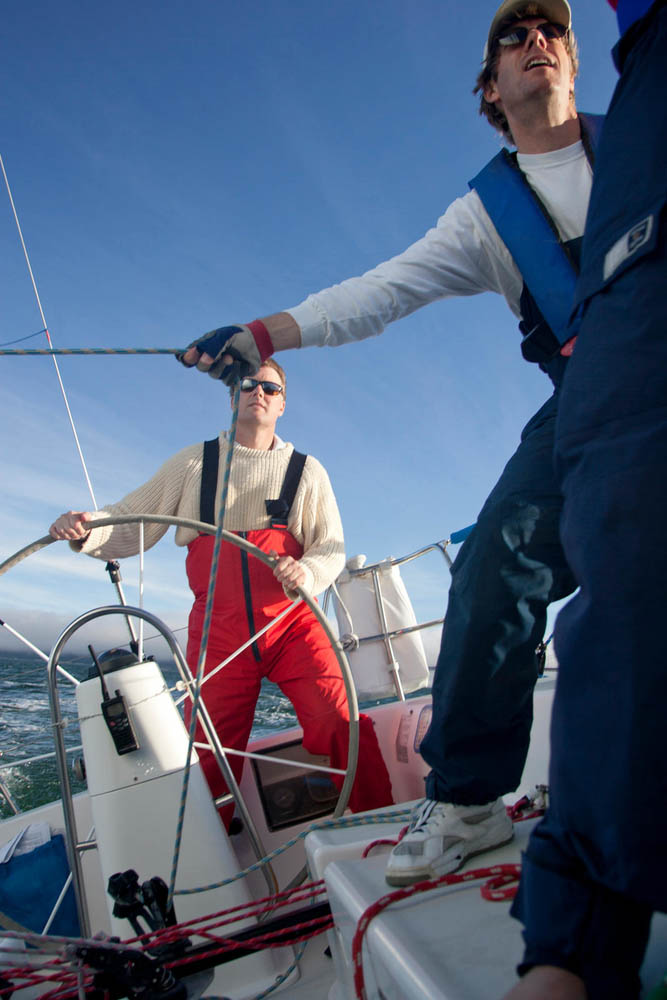
My mistakes mounted. One morning I poured muesli into a bowl, then walked towards the galley with it, ignoring the rule that you must always hold on to something. “Pollyyyyy!” came Dan’s voice from above. I froze. “What did I tell you?” he said. It was true: if I’d been on deck carrying the bowl like that, a rogue wave could have pitched me overboard. On a boat, hierarchy isn’t formal, but it is absolute. Skippers don’t shout unless they must. When they do, everyone listens. Safety depends on vigilance, not charm.
“Pollyyyyy!” came a now increasingly frequent call, or yell, more like. I hurried below to find Emily and Dan bailing seawater from the saloon. “You left your hatch open,” said Dan. Waves had poured into my cabin, soaking everything. Dan sent me back to helm. I sensed he thought I could do least harm there. Yet no one mocked me. I learned by degrees, under watchful eyes.
The Bay of Biscay itself is not for the faint-hearted. It’s not a bay in the gentle sense, so much as a deep, wind-wracked bite out of the North Atlantic, stretching from northwest Spain to western France. It’s where the continental shelf falls away sharply and Atlantic storms build muscle. September, when we were crossing, marked the end of the “weather window” – the last relative calm before autumn squalls. That year, a new hazard had emerged: juvenile orcas ramming the rudders of yachts. Boats shorter than 50ft were advised to stay away. Though we weren’t struck, the idea of being rammed by an orca lingered: a real-world peril that would find its way into my novel.
One night, a squall hit. I woke up pitched sideways against the lee cloth. Water crashed over the hatch. I staggered on deck to find everyone but me in harness, manning sails. “It’s mostly passed,” Dan said. The wind had dropped, but something in his face stayed taut. I saw then that the skippers never really slept. Their authority didn’t come from raised voices, but from a constant readiness to act.
I came to enjoy the midnight watch. Out there, beneath a huge moon, I felt like a sailor
I came to enjoy the midnight watch. Out there, beneath a huge moon, I felt like a sailor
Gradually, I came to enjoy the midnight watch. Out there, beneath a huge moon, with the Automatic Identification System (AIS) screen glowing beside me and waves full of imagined shapes, I felt like a sailor. The AIS tracked nearby vessels, showing their name, course and speed. But not everything had AIS. Not fishing boats, nor whales. There is no replacement for the watchful human eye.
The dolphins came one night, gliding alongside. More wave than flesh, they played beside us in the silvered darkness. The boat seemed to come alive. “Take care of your boat and she’ll take care of you,” Søren said. This wasn’t just a vessel. It was a home, a partner, a repository of trust. These skills were my half of a relationship. I tried harder.
Helming was, at first, bewildering – balancing course and wind without over-correcting. “A flappy sail is an unhappy sail,” Emily said. I began to sense the wind and trim the sails. The calls of “Pollyyyyy!” ceased. As we neared Baiona in northern Spain and needed to spot lobster pots lurking just beneath the surface, Dan praised my vigilance. I was absurdly proud.
A small, sunlit town with cobbled streets and a seafaring history, Baiona was the first European port to receive news of the New World in 1493. We explored the old town and sampled percebes (goose barnacles) – ugly, finger-like crustaceans said to taste of pure sea, which they did.
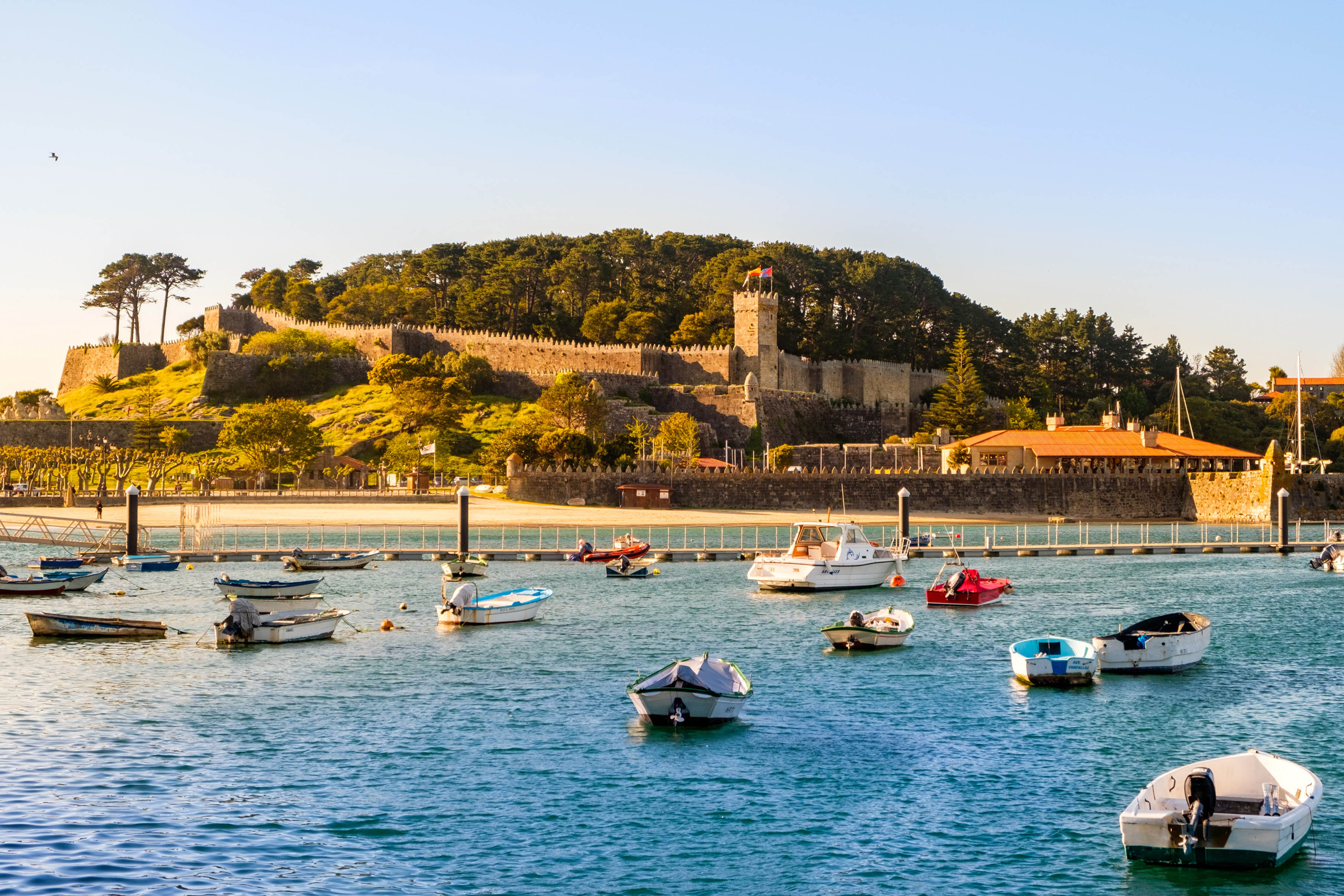
Then it was on to Lisbon. Approaching the River Tagus, at whose mouth the Portuguese capital sits, we dropped sail and motored slowly through the fishing boats. Seeing a city for the first time from the sea is an unforgettable experience. We moored in Doca de Alcântara near the centre and ate together at a harbourside restaurant.
I’d booked an apartment in the Alfama district, expecting to write. But it was hard to leave. Rike and Peter were continuing on Skyelark 2 to the Canaries, then St Lucia. The rest were heading home. Dan gave me a hug. “Will I make a sailor?” I asked. He smiled. “You’ve come a long way,” he said. It wasn’t quite “yes”, but I took the compliment.
Soon after returning, I bought a larger boat. I renovated it over two years, not to chase adventure, but for the peace that water had given me on my maiden voyage. Without it, I’d never have realised how otherworldly a lone boat on the waves can be, and how that environment forges deeper relationships than can ever emerge on shore.
Ocean by Polly Clark is published on 12 June by Lightning, £14.99. Polly Clark travelled with Skyelark 2 Adventure Sailing (adventuresailing.com)
All aboard… get a taste for sailing
Novice sailors
For an introduction to ocean sailing, join Adventure Sailing for a trip from Azores to Las Palmas. Find your sea legs in the Azores Islands, then set off on a five-day passage sail to the Canaries. Fifteen days, £4,800 per person, June 2026 (adventuresailing.com)
Distant shores
Island-hop in the Caribbean with a mix of day sails, night-anchoring in pretty bays, and exploration ashore, including volcano hikes and snorkelling with turtles. A perfect way to experience living on a boat. Fully catered and pampered. Ten days, £2,950 per person, January to May 2026 (adventuresailing.com)
Luxury cruising
If being a passenger with optional light crewing is more your style, join the Spirit of Ponant, a 24m sailing catamaran, on a bespoke seven-night cruise for up to 12 guests. Destinations include Corsica (summer) or the Seychelles (winter). Prices from €8,500 per person (uk.ponant.com)
Photographs Eve Livesey; DDP; Michael Turek/Gallery Stock; Jekaterina Sahmanova/Getty Images
